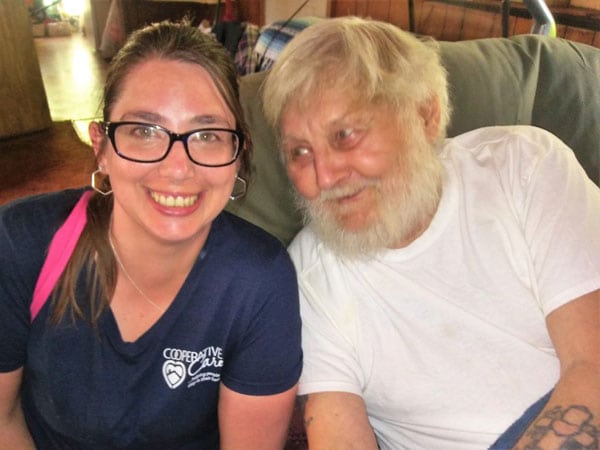
Stacy Hodge is a single mom with three kids. As a home care worker, she makes $10.75 an hour, plus a little extra for gas and travel time. To get by on that, Stacy says she has to budget carefully. She’s been in the job for three years, which is a long time in this sector. National figures show that more than half of her colleagues in any given year would have quit by now, heading to jobs in fast food and retail where they can earn more. But Hodge says, “I like what I do. I would rather make a little less and enjoy what I do.”
People like Hodge are essential if America is going to deal with a growing crisis in the sector: four million people are turning 65 every year, and there aren’t enough professionals to take care of seniors as they age.
Those who are willing to do this work tend to be women. It’s “disproportionately women of color and immigrant women who do this work,” Ai-Jen Poo, director of the National Domestic Workers Alliance tells us. “And it has a long history of being undervalued, under-recognized and even excluded from some of the most basic, basic protections,” she says.
Domestic workers were excluded from core labor protections set in the 1930s and were only granted federal minimum wage and overtime protections in 2013. Home care workers still have to deal with no paid sick leave, low wages, and sexual harassment, among other challenges. The turnover rate hovers at around 67 percent annually.
Sign up for our free newsletters
Subscribe to NPQ's newsletters to have our top stories delivered directly to your inbox.
By signing up, you agree to our privacy policy and terms of use, and to receive messages from NPQ and our partners.
“The people who are caring for the people who are the most vulnerable people in our country, are being treated in a really awful way,” says David Hammer, Executive Director of the ICA Group, a consulting firm that works with home care companies.
In this podcast, we travel from rural Wisconsin to the Bronx to spend time with family caregivers and home care workers like Hodge. We learn about the economic and political factors that have created this crisis, and we explore what it will mean if there aren’t enough people to do this work.
“I fear we’ll see death by neglect,” Debra Schultz, finance coordinator of Cooperative Care in Wisconsin tells us. “There’s just not going to be the workforce to help these baby boomers, to help them survive in their home,” she says. “It’s very scary, very scary.”
Additional Resources:
- PHI (Paraprofessional Healthcare Institute): “US Home Care Workers Key Facts”
- Mother Jones: “A Radical Solution to the Impossible Cost of Caring for the Elderly”
- Boston Globe: “The US has a huge need for home health care, and many from Ghana do the hard work”
- CityLab: “Can America’s Aging Stay in Their Homes?”













